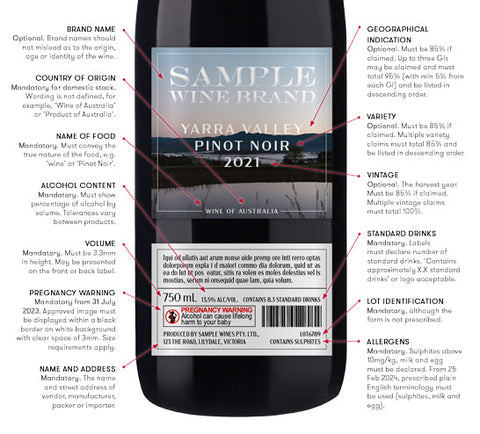Wine Storage Tips for Australian Weather Conditions
Storing wine properly in Australia's challenging climate requires special consideration. From scorching summers to temperature fluctuations, our unique weather patterns can significantly impact wine quality. Here's your comprehensive guide to protecting your wine collection.
Understanding Australian Climate Challenges
Temperature Extremes
Our climate presents several challenges:
- Summer temperatures regularly exceeding 35°C
- Significant day-night temperature variations
- Heat waves that can last several days
- Seasonal temperature fluctuations
Regional Considerations
Different regions require different approaches:
- Coastal areas: Managing humidity
- Inland areas: Dealing with extreme heat
- Southern regions: Less extreme but variable conditions
- Northern regions: Tropical considerations
Essential Storage Requirements
Temperature Control
Ideal storage conditions:
- Consistent temperature between 12-16°C
- Maximum daily variation of 5°C
- Protection from extreme heat events
Humidity Management
Optimal conditions:
- 60-70% relative humidity
- Consistent levels year-round
- Protection from both excessive dryness and moisture
Storage Solutions for Different Budgets
Premium Options
- Purpose-built climate-controlled cellars
- Professional wine cabinets
- Underground cellars
Mid-Range Solutions
- Converting existing rooms
- Insulated wine fridges
- Semi-underground storage
Budget-Friendly Approaches
- Repurposed cupboards in cooler rooms
- Styrofoam boxes for short-term storage
- Strategic use of home air conditioning
Protecting Your Investment
Short-Term Storage
For wines you'll drink within months:
- Dedicated wine fridge
- Cool, dark cupboard
- Consistent environment
Long-Term Storage
For cellaring and investment wines:
- Professional storage facilities
- Purpose-built home solutions
- Careful monitoring systems
Common Australian Storage Mistakes
What to Avoid
- Garage storage (temperature fluctuations)
- Kitchen storage (heat exposure)
- Window proximity (UV damage)
- Under-house storage (unless properly configured)
Emergency Heat Wave Protection
Quick Solutions
- Move wine to air-conditioned spaces
- Use temporary cooling solutions
- Consider professional storage during extreme events
Preventive Measures
- Monitor weather forecasts
- Have backup power for cooling systems
- Maintain emergency storage options
Professional Storage Options
Wine Storage Facilities
Benefits include:
- Constant temperature control
- Professional monitoring
- Insurance coverage
- Inventory management
Costs and Considerations
- Monthly rental fees
- Access arrangements
- Transportation requirements
- Insurance implications
Home Storage Design
Room Selection
Best options:
- Southern-facing rooms
- Underground spaces
- Insulated internal rooms
- Converted cupboards
Insulation Requirements
Essential elements:
- Wall insulation
- Ceiling protection
- Door sealing
- Window treatment
Monitoring and Maintenance
Essential Equipment
- Thermometers
- Humidity meters
- Data loggers
- Backup systems
Regular Checks
- Daily temperature monitoring
- Weekly humidity checks
- Monthly system maintenance
- Seasonal adjustments
Wine Types and Storage Needs
Different Requirements
- Sparkling wines: Consistent cool temperatures
- White wines: Cool but not cold
- Red wines: Slight temperature variation acceptable
- Fortified wines: More tolerant of conditions
McLaren Vale Cellars' Storage Approach
Visit our cellar door to learn more about proper wine storage. We maintain optimal conditions for our entire range and can provide practical demonstrations of proper storage techniques.
Remember, proper wine storage in Australian conditions is an investment in your wine's future enjoyment. Whether you're storing everyday drops or special occasion wines, following these guidelines will help ensure every bottle reaches its full potential.




Comments (0)
There are no comments for this article. Be the first one to leave a message!